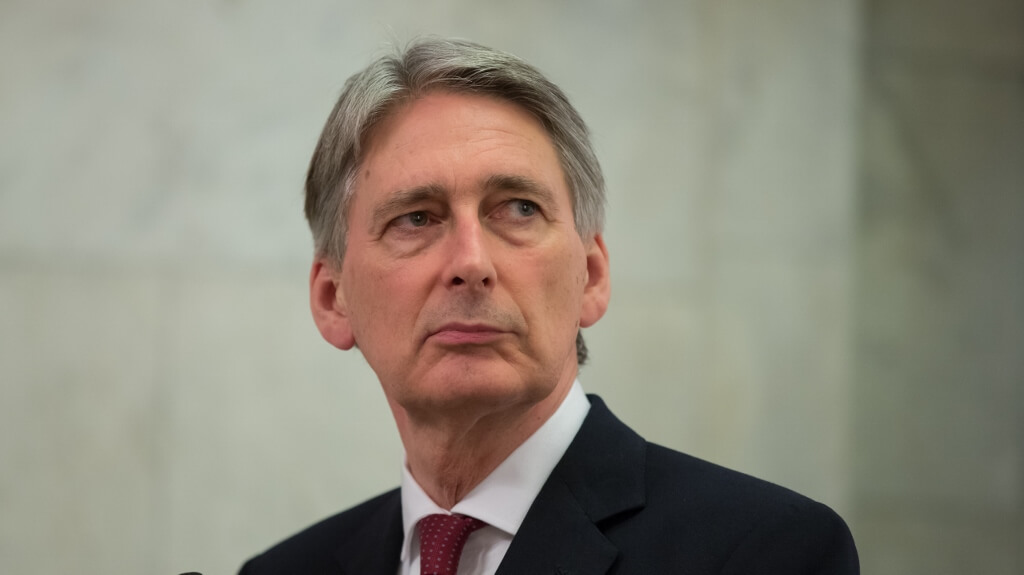Wednesday's Autumn Statement is Philip Hammond's first as Chancellor. Why is it important and what can we expect in his inaugural address as holder of the country's purse strings?
What Can We Expect From A Philip Hammond Autumn Statement?
Wednesday's Autumn Statement is Philip Hammond's first as Chancellor. Why is it important and what can we expect in his inaugural address as holder of the country's purse strings?

The Autumn Statement on Wednesday is Philip Hammond's first set-piece fiscal event as chancellor. The Autumn Statement has evolved considerably since the days when Lawson, Lamont and Clarke published only a slim update on the public finances and revised economic forecasts.
Under Gordon Brown, the renamed Pre-Budget Report became a mini-Budget, an opportunity to grandstand and control the agenda, and an instrument through which the Treasury's imperial reach across Whitehall was advanced. Like the Budget, the PBR was stuffed with spending and tax measures.
The documents were also huge, with hundreds of pages of narrative attempting to create the illusion of order from the chaotic reality of Whitehall.
Osborne reverted to the original title and minimalist cover, but otherwise continued this approach. The Autumn Statement, as much as the Budget, was about political and media dominance as well as fiscal probity. And in this way it served to help the Chancellor personally to dominate the political landscape, as much as the government of the day.
Hammond has made a play of wanting a more pared-down Autumn Statement, more in line with the pre-1997 approach. The world has moved on since then.
Despite his rumoured wish to drop the Autumn Statement, we are very unlikely to see a return to the minimalist approach of 20 years ago. However, it seems likely that we will get a broader, more strategic, tone from this Chancellor. That said, Hammond's objectives are remarkably similar to Brown's and Osborne's.
Firstly, he needs to play to the country at large. May’s determination to address the concerns of the JAMs (those who are 'Just About Managing') will be a central focus. The extent to which he is able will depend on whether he believes that the public finances can support it.
He is departing from the targeted surplus by 2020, with the mid-20s being a more realistic new target. Theoretically, this should give him more money to play with; however, if the rumors of a forecast black hole of up to £100bn by 2020 are proven, then we may find the 'offer' to individuals is more narrative than substance.
Hammond therefore looks likely to offer relatively small measures such as cuts in excise duties (fuel or alcohol). He may also go further on the progress towards the income tax personal allowance of £12,500 - although this would be pricey. Bigger measures, such as a cut in VAT, will almost certainly not happen.
This is hugely expensive - a reduction back to 17.5% would cost around £11bn annually. The rationale would also be unclear at this point, as the current economic data are relatively benign. If things subsequently take a turn for the worse, the Chancellor will have left himself no room for any other fiscal stimulus.
Secondly, he needs to steady the ship. Post-referendum, the economic uncertainty is huge. We know that the UK should be out of the EU by March 2019, yet have no idea what our future arrangements with the EU and the rest of the world look like.
Hammond therefore needs urgently to maintain business confidence and demonstrate that the UK is 'open for business'. At the centre of this will be a new ‘productivity’ fund of £5bn worth of infrastructure upgrades and spending on research and development.
Other possible include further business rates relief (offsetting the impact of the planned April 2017 rise), and a rumored cut in Air Passenger Duty. However, we are not expecting any further reduction in corporation tax beyond what has already been announced - and any further action on investment allowances seems unlikely.
Finally, Hammond needs to secure his position. He cannot be removed barring a huge political crisis. However, he can be sidelined - it is clear that this is something that some in the Cabinet would like to happen. The Chancellor therefore needs to use this event clearly to confront the pro-Brexit brigade with the consequences of certain courses of action.
That the public finances have deteriorated due to the Brexit vote should be put fully on display. So should the economic consequences of a loss of access to the single market, or a departure from the customs union. Those who argue the other way need to be forced to defend why they are not risking irreparable damage to our economy.
The Chancellor is one of the biggest beasts in government. He is served by the most highly-motivated, intellectually-able, officials in Whitehall. Regardless of the size of the document, the political opportunity offered to Hammond by the Autumn Statement is huge.
He needs to learn from Brown and Osborne and use Wednesday to reassert the dominance of the Treasury.
James Dowling is head of public policy at Lansons.
Thanks for signing up to Minutehack alerts.
Brilliant editorials heading your way soon.
Okay, Thanks!




